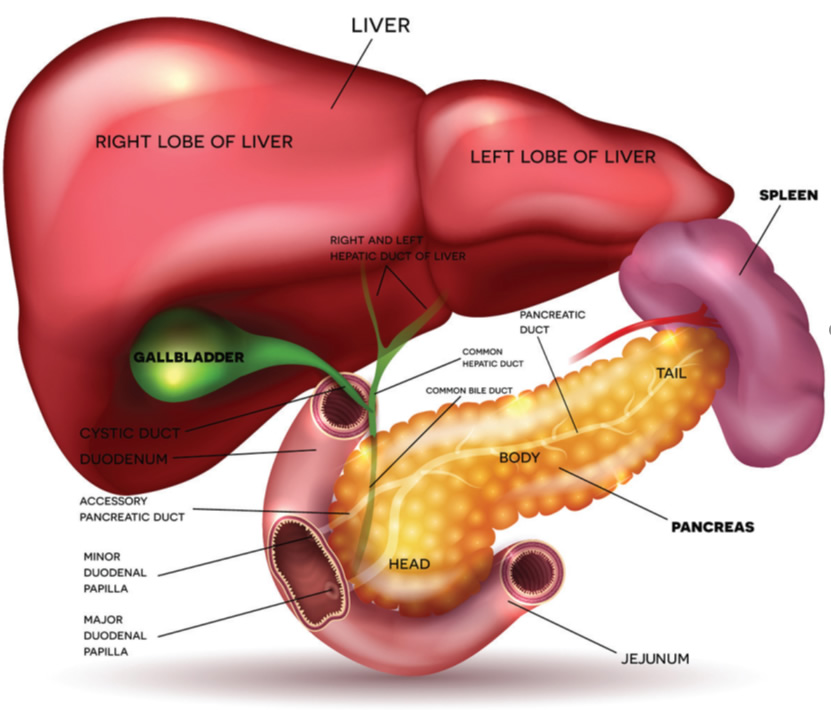The pancreas is an organ that sits behind the stomach. It makes hormones and juices that help the body break down food. Pancreatic cancer is the fourth leading cause of cancer deaths in the United States and happens when cells in the pancreas become abnormal and grow out of control.
Pancreatic cancer programs at Texas Health bring together specialists in the diagnosis and treatment of pancreatic cancer, including doctors and surgeons on the medical staff, dieticians, and genetic specialists, who can diagnose and manage all stages of pancreatic cancer.

Symptoms
Pancreatic cancer is sometimes called a “silent disease.” Some people may not have specific symptoms or may not have any symptoms at all. When the cancer grows, one or more of these symptoms may appear:
- Sudden pancreatitis not caused by alcohol or gallstones
- New-onset diabetes, especially in people aged 50 or older
- Yellowing of the skin and whites of the eyes (jaundice)
- Dark urine
- Light-colored stools
- Unexplained weight loss
- Stomach pain that may go toward your back
- Nausea, vomiting and constipation
- Feeling tired
- Blood clot in the leg without a specific risk factor
- Lesions found on imaging tests
|
Pancreatic Cancer Risk Factors
|
Diagnosis and Testing
Screening
Early detection for people with a strong family history of pancreatic cancer and hereditary conditions should be referred to a genetic counselor or cancer specialist for genetic testing.
Pancreatic cancer is diagnosed by:
- Laboratory tests such as Tumor markers- CA-19-9. This is often high in pancreatic cancer.
- Imaging studies that show information about the pancreas and surrounding tissues, such as:
- CT imaging
- MRI (Magnetic Resonance Imaging)
- MRCP (Magnetic Resonance Cholangiopancreatography)
- ERCP (Endoscopic Retrograde Cholangiopancreatography)
- EUS (Endoscopic Ultrasound) and Biopsy
Treatment
Treatment depends on:
- The location of the tumor
- If the cancer has spread
- Your age and general health
Specific treatments may include:
- Surgery
- Chemotherapy
- Radiation therapy
- Targeted therapy
SOURCES:
The Washington manual of surgery- Klingensmith, M. E., & Louis, M. W. U. (S. (2016). Washington Manual of Surgery, 7E. Wolters Kluwer Health.
https://www.cancer.org/cancer/pancreatic-cancer/detection-diagnosis-staging/survival-rates.html
https://www.nccn.org/patients/guidelines/content/PDF/pancreatic-patient.pdf
https://www.cancer.net/cancer-types/pancreatic-cancer/statistics

